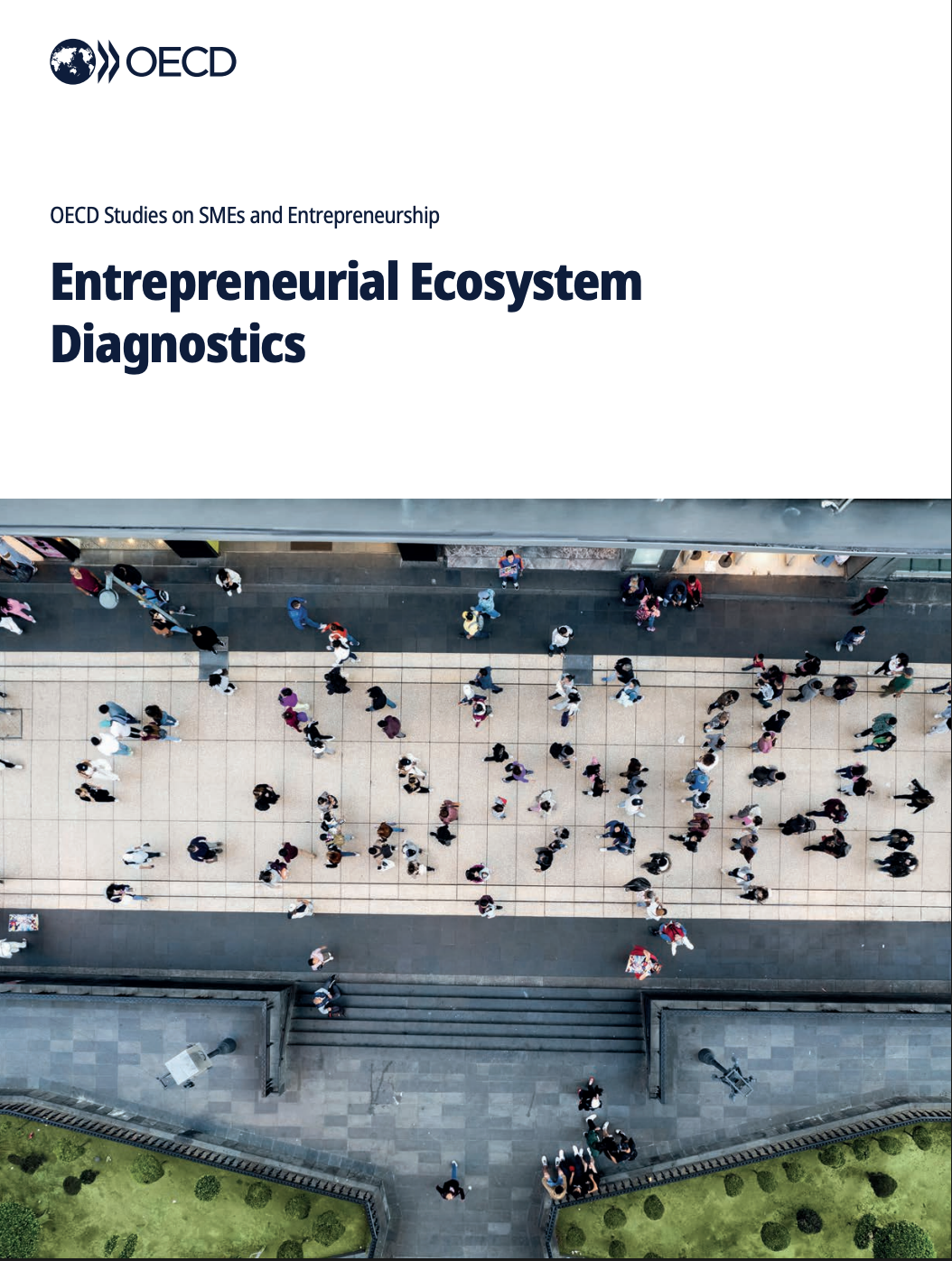In a time when African nations are racing to unlock inclusive economic growth, a new global report by the OECD sheds light on what it takes to create truly thriving entrepreneurial ecosystems and what’s holding many countries back.
The Entrepreneurial Ecosystem Diagnostics report, published in 2025, marks the OECD’s first comprehensive benchmarking of all 38 member countries. It evaluates 10 critical ecosystem elements, from institutions and finance to talent, networks, leadership, and knowledge, offering a roadmap for countries to diagnose strengths, weaknesses, and gaps in their startup support systems.

Why This Matters for Africa?
Though the report focuses on OECD member states, its framework offers urgent lessons for African policymakers, development institutions, and private sector actors. With Africa’s startup ecosystem growing, from Nairobi’s fintech boom to Cape Town’s deep tech labs, the report highlights a central truth:
You can’t grow productive entrepreneurship in a vacuum. It takes interlinked policy, talent, infrastructure, and trust.
In regions where funding still skews toward later-stage ventures and informal businesses dominate job creation, the report’s emphasis on productive entrepreneurship, startups that create jobs, innovate, and scale, offers a lens through which Africa can align with global competitiveness.
Key Takeaways from the OECD Report:
- Leadership, markets, and knowledge were the weakest ecosystem elements across OECD nations, precisely where many African countries also lag. These are opportunities for leapfrogging through policy reform and cross-sector investment.
- France, Colombia, Estonia, and Türkiye are cited as examples of countries that made significant ecosystem improvements in just a few years, proving that transformation is possible with focused effort.
- The most “entrepreneur-ready” economies, like the U.S., UK, and Switzerland, scored high not just on funding but on institutional trust, low regulatory burden, and robust support networks.
- Social and regional inclusion in entrepreneurship remains a global gap. Women, youth, and migrants are still underrepresented, and this holds true in many African startup narratives.
What African Countries Can Learn and Do?
The OECD diagnostic tool offers a clear checklist for countries looking to transition from informal entrepreneurial hustle to structured innovation economies:
- Map the ecosystem across 10 critical dimensions (including culture, infrastructure, talent, and leadership).
- Invest in data. Many ecosystem challenges stem from not knowing where the bottlenecks are.
- Support at the intersection: Encourage linkages between academia, business, and policy to create pipeline-ready talent and ideas.
- Build local leadership in startup hubs — visible, trusted entrepreneurs and community builders drive momentum.
The African Outlook
African economies like South Africa, Kenya, Nigeria, and Rwanda are already experimenting with targeted startup laws, angel networks, and digital infrastructure investments. But many efforts remain fragmented, and policy often lags behind the pace of innovation.
This OECD report may not mention African countries directly, but it provides a powerful mirror for governments to rethink their entrepreneurship agendas with clarity and structure.
“This isn’t about copying Silicon Valley,” said one analyst. “It’s about tailoring ecosystem strategies that reflect local realities while building global readiness.”
You can find out more on the report HERE